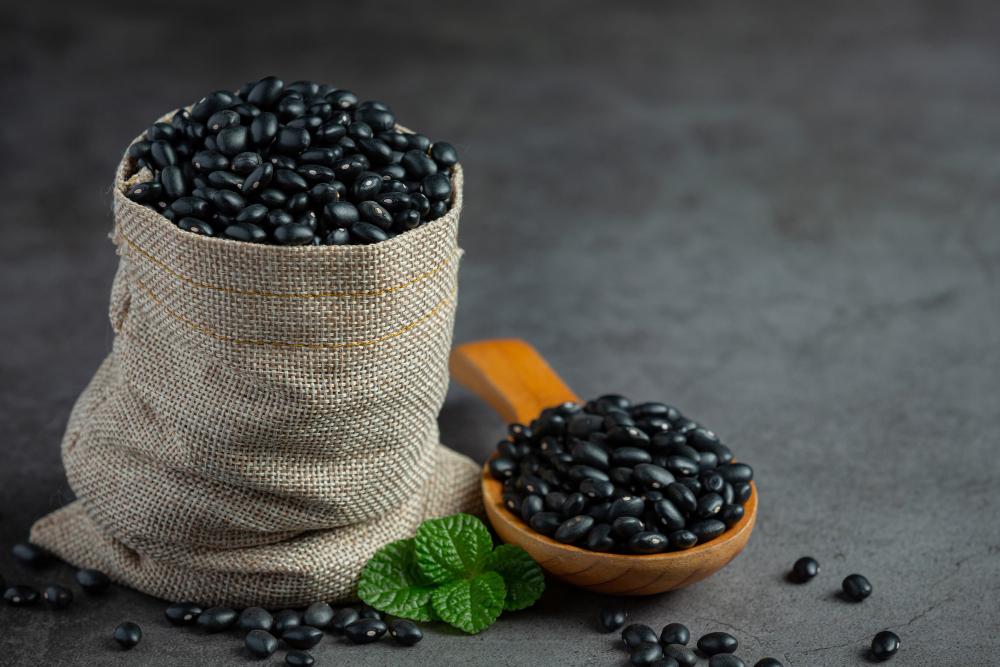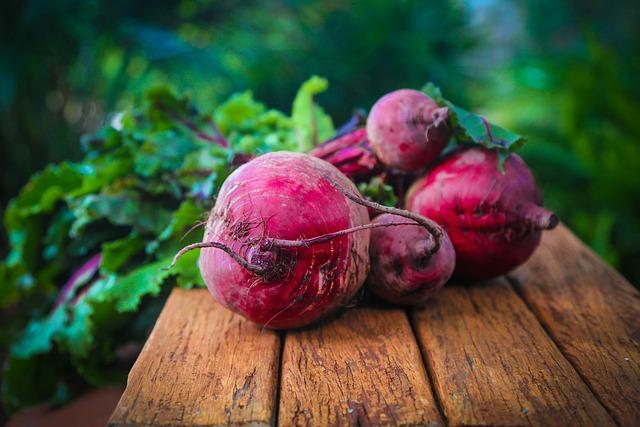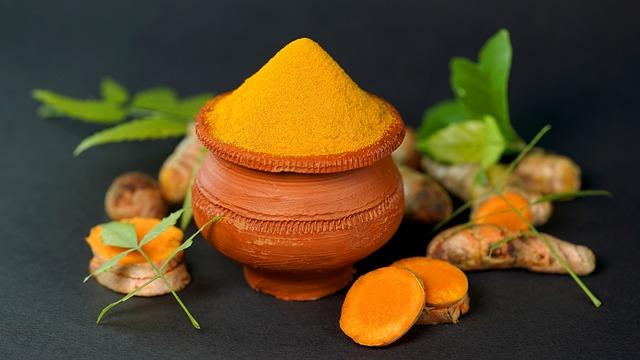No products in the cart.
The Astonishing Health Benefits of Eating Broccoli Every Day
Broccoli is a cruciferous vegetable that is widely recognized for its numerous health benefits. It is packed with essential nutrients, including vitamins, minerals, and antioxidants, that promote overall health and well-being.
Eating broccoli every day has been associated with a range of health benefits, from reducing the risk of chronic diseases to supporting healthy brain function.
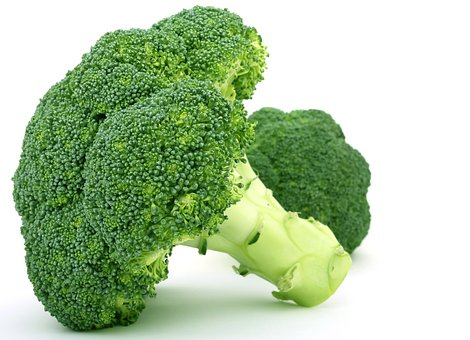
In this article, we will explore the astonishing health benefits of incorporating broccoli into your daily diet and how to do so in a tasty and enjoyable way.
Ready?
Lets begin by defining broccoli:-
What is Broccoli
Broccoli is a green, flowering plant that belongs to the family of cruciferous vegetables. It is closely related to other vegetables such as cauliflower, Brussels sprouts, and kale. Broccoli has a thick stem and is crowned with a cluster of tightly packed, bluish-green flower buds that are referred to as the “head” or “florets.” The florets are surrounded by dark green leaves that are edible but are usually removed before cooking.
The color of broccoli can vary depending on the variety and maturity of the plant. Typically, broccoli has a deep green color, which is a result of the presence of chlorophyll, the pigment responsible for photosynthesis in plants. However, some broccoli varieties may have a slightly lighter green or bluish-green color.
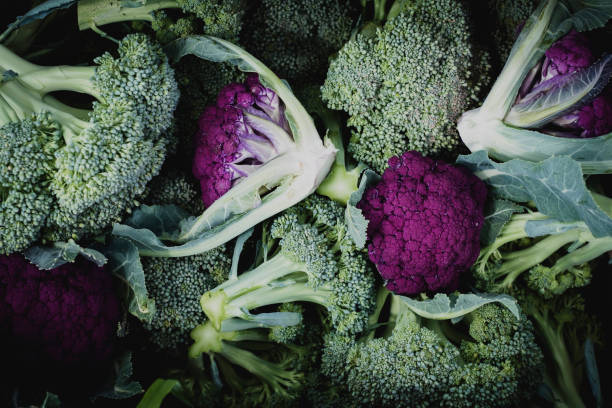
In addition to the traditional green-colored broccoli, there are also other varieties available. For example, purple broccoli has a deep purple head and dark green leaves, while white broccoli has a creamy white head and light green leaves. These varieties have slightly different nutrient profiles than traditional green broccoli but are still highly nutritious and delicious.
Nutritional Content of Broccoli
Broccoli is a nutritional powerhouse that provides a wide range of vitamins, minerals, and antioxidants essential for optimal health.
For instance;
One cup (91 grams) of cooked broccoli provides:
- Vitamin C: 135% of the daily recommended intake
- Vitamin K: 116% of the daily recommended intake
- Vitamin A: 11% of the daily recommended intake
- Folate: 14% of the daily recommended intake
- Potassium: 8% of the daily recommended intake
- Fiber: 5 grams
Here is a breakdown of the nutritional content of broccoli:
- Vitamin C: 100 grams of raw broccoli contains about 89.2 mg of vitamin C, which is over 100% of the recommended daily intake for adults.
- Vitamin K: A single cup (91 grams) of cooked broccoli contains 113 micrograms of vitamin K, which is over 100% of the recommended daily intake for adults.
- Vitamin A: One cup of raw broccoli contains about 567 IU of vitamin A, which is about 11% of the recommended daily intake for adults.
- Folate: One cup of cooked broccoli contains about 84 mcg of folate, which is about 14% of the recommended daily intake for adults.
- Fiber: One cup of cooked broccoli contains about 5 grams of fiber, which is about 20% of the recommended daily intake for adults.
- Potassium: One cup of cooked broccoli contains about 457 mg of potassium, which is about 8% of the recommended daily intake for adults.
- Calcium: One cup of cooked broccoli contains about 62 mg of calcium, which is about 6% of the recommended daily intake for adults.
How vitamins and minerals help your body
- Vitamin C: helps protect the body from damage caused by harmful free radicals. Vitamin C also plays a key role in immune function, wound healing, and collagen production.
- Vitamin K:important for blood clotting and bone health.
- Fiber: for digestive health and can help lower cholesterol levels and reduce the risk of heart disease.
- Calcium: for strong bones and teeth, as well as nerve function and muscle contraction.
- Folate: B a B vitamin that is important for DNA synthesis and cell division. Folate is also important for healthy fetal development during pregnancy.
- Iron: for the production of red blood cells and oxygen transport throughout the body.
- Potassium: helps regulate blood pressure and fluid balance in the body.
- Beta-carotene: a precursor to vitamin A that is important for eye health and immune function.
- Sulforaphane: compound that has been shown to have anti-cancer properties and may also help reduce inflammation in the body.
- Zeaxanthin and lutein: two antioxidants that are important for eye health and may help protect against age-related macular degeneration.
Amazing Health Benefits of Broccoli
- Reduces the risk of cancer:
Broccoli contains sulforaphane, a compound that has been shown to have anti-cancer properties. Regular consumption of broccoli has been linked to a reduced risk of various types of cancer, including breast, prostate, lung, and colon cancer.
- Promotes heart health:
Broccoli is rich in fiber, potassium, and antioxidants, which are all important for heart health. Eating broccoli regularly has been shown to help lower blood pressure, reduce cholesterol levels, and decrease the risk of heart disease.

- Supports digestive health:
The high fiber content in broccoli can help promote healthy digestion and prevent constipation. Broccoli also contains a compound called glucoraphanin, which has been shown to protect the stomach lining and prevent the growth of harmful bacteria in the gut.
- Boosts brain function:
- Supports skin health:
- Protects eye health:
- Boosts the immune system:
- Supports bone health:
- Reduces inflammation:
- Helps with weight management:
Broccoli is a good source of choline, a nutrient that is important for brain development and function. Eating broccoli regularly has been linked to improved memory and cognitive function.
Broccoli contains antioxidants such as vitamin C and beta-carotene, which help protect the skin from damage caused by UV radiation and other environmental factors. These antioxidants can also help reduce inflammation in the skin, which can improve overall skin health.
Broccoli is a good source of lutein and zeaxanthin, two antioxidants that are important for eye health. These antioxidants can help protect the eyes from damage caused by UV radiation and may reduce the risk of age-related macular degeneration.
Broccoli contains a variety of nutrients, including vitamins C and E, that are important for immune function. Eating broccoli regularly can help strengthen the immune system and protect against infections.
Broccoli is a good source of calcium, which is important for bone health. It also contains vitamin K, which helps regulate calcium absorption and may reduce the risk of osteoporosis.
Broccoli contains various compounds that have anti-inflammatory properties, including sulforaphane and kaempferol. Eating broccoli regularly may help reduce inflammation in the body and lower the risk of chronic diseases.
Broccoli is low in calories but high in fiber, which can help promote feelings of fullness and prevent overeating. Eating broccoli regularly may help with weight management and weight loss.
How to Incorporate Broccoli into your Daily Diet
Incorporating broccoli into your daily diet doesn’t have to be difficult or boring.Many people struggle to incorporate broccoli into their daily meals, either because they don’t know how to prepare it, or because they don’t like the taste. Let us show you different ways to prepare and cook broccoli, and provide some delicious recipes and meal ideas you can try out.
Different Ways to Prepare and Cook Broccoli
Steaming:
Steaming is one of the healthiest ways to cook broccoli, as it preserves most of its nutrients. To steam broccoli, simply place it in a steamer basket over boiling water and cook for 5-7 minutes, or until tender.
Roasting:
Roasting broccoli can give it a crispy texture and a delicious, nutty flavor. To roast broccoli, toss it with some olive oil and your favorite seasonings, and bake in the oven at 425°F for 20-25 minutes, or until crispy.
Stir-frying:
Stir-frying broccoli is a quick and easy way to add it to your meals. Simply heat some oil in a pan, add chopped broccoli, and stir-fry for a few minutes until tender. You can also add other vegetables, such as peppers or onions, for a colorful and nutritious stir-fry.

Blanching:
Blanching broccoli involves boiling it briefly, then immediately transferring it to ice-cold water to stop the cooking process. This method can help preserve the bright green color of the broccoli, and make it more tender. To blanch broccoli, simply boil it for 2-3 minutes, then transfer it to a bowl of ice-cold water for 1-2 minutes.
Broccoli Recipes and Meal Ideas
Broccoli soup:
Broccoli soup is a delicious and nutritious way to incorporate broccoli into your meals. To make broccoli soup, sauté some onions and garlic in a pot, add chopped broccoli, and cover with vegetable broth. Cook for 10-15 minutes, then blend until smooth. You can also add other ingredients, such as potatoes or carrots, for a creamier soup.
Broccoli and cheese casserole:
Broccoli and cheese casserole is a classic dish that is perfect for a cozy family dinner. To make it, simply steam some broccoli, then mix it with a cheesy sauce made from milk, flour, and shredded cheddar cheese. Bake in the oven for 20-25 minutes, or until golden brown.
Broccoli salad:
Broccoli salad is a refreshing and healthy side dish that can be served with any meal. To make it, chop some broccoli into small pieces, and mix it with other ingredients such as chopped red onion, dried cranberries, and sunflower seeds. Dress with a simple vinaigrette made from olive oil, vinegar, and Dijon mustard.
Broccoli and chicken stir-fry:
Broccoli and chicken stir-fry is a quick and easy meal that is perfect for busy weeknights. Simply stir-fry some chopped chicken in a pan, add chopped broccoli and other vegetables, and season with soy sauce and ginger. Serve over rice or noodles for a complete meal.
Tips for Adding Broccoli to Your Meals
- Sneak it into smoothies:
If you’re not a fan of the taste of broccoli, try blending it into a smoothie with other fruits and vegetables such as bananas, strawberries, and spinach. You won’t even taste the broccoli, but you’ll still get all of its nutritional benefits.
- Add it to pasta dishes:
Broccoli pairs well with pasta and can add some extra nutrition to your favorite pasta dishes. Simply steam or saute some broccoli florets and toss them with your favorite pasta sauce and cooked pasta.
- Top your pizza with broccoli:
Instead of the usual pepperoni or sausage, top your pizza with some cooked broccoli florets, sliced red onions, and goat cheese for a delicious and healthy twist on pizza night.

How to Select Fresh, Organic and High-Quality Broccoli
When it comes to selecting fresh, organic, and high-quality broccoli, there are a few key factors to keep in mind. Here are some tips to help you choose the best broccoli for your meals:
- Look for vibrant green color: Fresh broccoli should have a vibrant green color, with no signs of yellowing or discoloration. The florets should be tightly packed and firm, and the stems should be firm and not rubbery.
- Check the smell: Broccoli should have a fresh, slightly sweet smell. If it has a strong or unpleasant odor, it may be past its prime.
- Check for bugs and damage: Inspect the broccoli for any signs of bugs or damage, such as holes or brown spots. These can indicate that the broccoli is not fresh or has been damaged during transportation.
- Choose organic: Whenever possible, choose organic broccoli to avoid exposure to pesticides and other harmful chemicals. Organic broccoli is also often fresher and more nutrient-dense than conventionally grown broccoli.
- Buy in season: Broccoli is a cool-season vegetable that is at its best during the fall and winter months. Buying broccoli in season can ensure that it is fresh, flavorful, and packed with nutrients.
How to Store Broccoli Properly to Maintain Its Freshness and Nutritional Value
Properly storing broccoli is essential for maintaining its freshness and nutritional value. Here are some tips for storing broccoli:
- Refrigerate: Store broccoli in the refrigerator as soon as possible after purchasing or harvesting. Broccoli is sensitive to heat and will spoil quickly if left out at room temperature.
- Keep dry: Moisture can cause broccoli to spoil more quickly, so it’s important to keep it as dry as possible. One way to do this is to wrap the broccoli in a damp paper towel before storing it in the refrigerator. Alternatively, you can place the broccoli in a plastic bag with a few air holes, but be sure not to seal the bag completely as this can trap moisture.
- Store in the crisper drawer: The crisper drawer in your refrigerator is the best place to store broccoli. This drawer helps regulate humidity and temperature, which can help keep the broccoli fresh for longer.
- Do not wash before storing: Avoid washing the broccoli before storing it, as excess moisture can cause it to spoil more quickly. Instead, wait to wash the broccoli until you’re ready to use it.
- Use within a week: Broccoli can start to lose its nutritional value after about a week in the refrigerator, so it’s best to use it as soon as possible. If you can’t use it within a week, consider blanching and freezing it for later use.
Bottom Line
Broccoli is a true superfood that offers a wealth of health benefits. From boosting immunity to promoting heart health, reducing inflammation, and preventing cancer, broccoli is a nutritional powerhouse that should be a regular part of your diet.
By making broccoli a regular part of your diet, you can reap the amazing health benefits that this cruciferous vegetable has to offer. Not only is it delicious and versatile, but it can also help protect your health and improve your overall wellbeing.
In terms of future research possibilities, there is still much to learn about the health benefits of broccoli and other cruciferous vegetables. Ongoing studies are exploring the potential of broccoli in preventing and treating a range of health conditions, including Alzheimer’s disease, osteoporosis, and diabetes. As research continues, we may discover even more reasons to love this incredible vegetable.
So, go ahead and add some broccoli to your next meal – your body will thank you for it!
